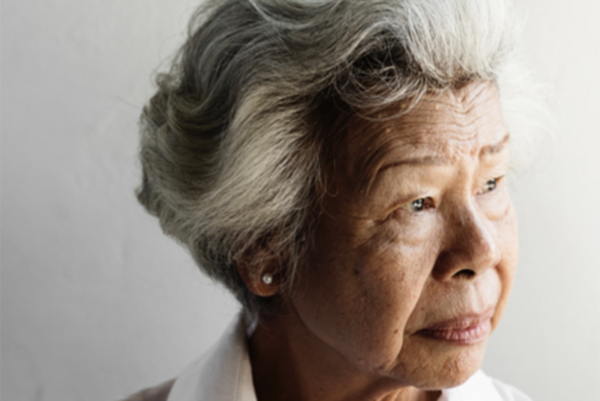Aging Right @ Home is a monthly blog series, answering your questions on providing care for individuals with disabilities, loved ones with dementia and older adults aging in place. If you have a question, please submit it to [email protected].
 Elder abuse isn’t a topic anyone enjoys discussing, but it’s important to acknowledge that it occurs.
Elder abuse isn’t a topic anyone enjoys discussing, but it’s important to acknowledge that it occurs.
Experts estimate that 10% of older adults are victims of some form of elder abuse, yet only a small percentage of cases are ever reported. This abuse can take several forms: physical abuse, emotional or psychological abuse, sexual abuse, neglect and abandonment, or financial exploitation.
While abuse occurs to all types of people in all types of situations, gerontologists say that social isolation is a top risk factor for elder abuse. This gives increased significance to Elder Abuse Awareness Month this year, as many seniors continue to battle the (social, financial, physical, etc.) impacts of COVID-19.
To that end, I wanted to shine a light on a few key items:
Preventing Elder Abuse
Everyone has a role to play in protecting aging adults — not just caregivers, but the general public as well. The following are key warning signs abuse may be occurring:
- Unexplained bruises, burns or cuts
- Poor hygiene, dirty clothes or bedsores
- Sudden change in financial situation or unusual stress about finances
- Depression or other signs of trauma
…among others, unfortunately
When It’s Time To Act
Seniors who are being mistreated may be too ashamed or afraid to talk about it. If you suspect an elder has been victimized, reassure them that it is not their fault. Then, explain that you are concerned and offer to assist them in getting help.
Concerns can be reported to the appropriate protective services agency and detailed information can be found on the National Center on Elder Abuse website.
Keeping Our Loved Ones Safe
Especially now, it’s important for families to stay in close touch with older family members. Make contact frequently, know the red flags listed above and encourage your loved one to express any concerns they have to you.
Professional in-home care services can often provide assistance as well. Professional caregivers assist clients with personal care, health care management, transportation, companionship and a variety of other services that ease stress. Additionally, they provide watchful supervision for all seniors and serve as a liaison for many families.
This provides peace of mind for families and ensures the well-being of their aging loved ones. Contact me today at Right at Home if you’d like a care consultation or if I’m able to provide any other assistance to you and your family.
Your neighbor, and Owner/President of Right at Home of Northern Virginia,
Phillip Turner, CDP, CSA



